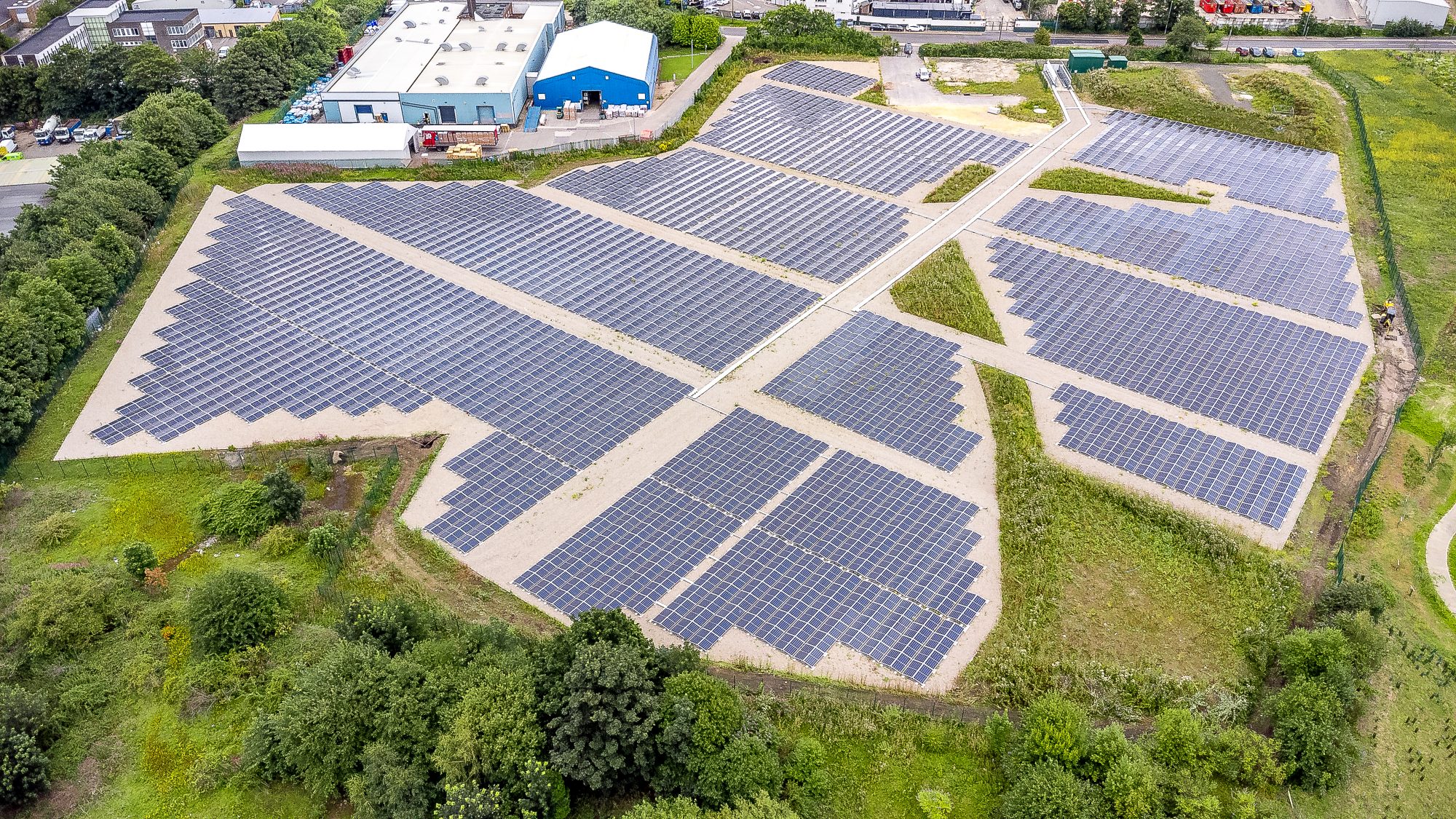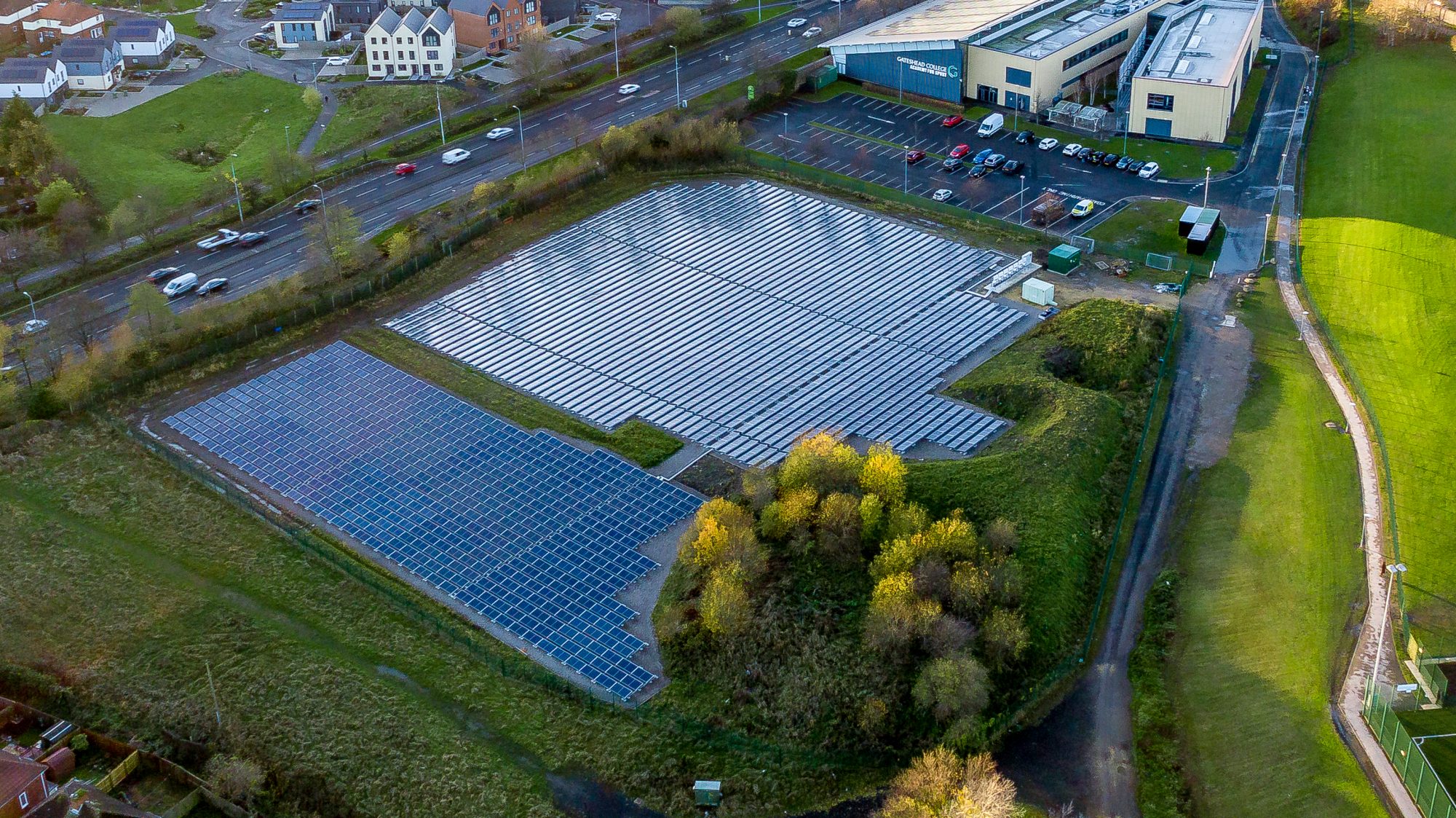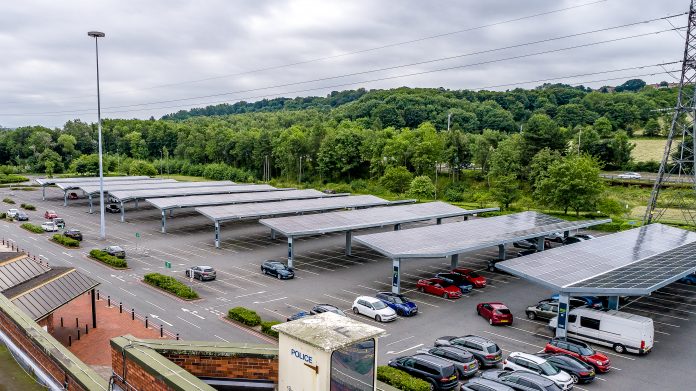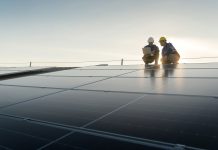With volatile energy prices continuing to cause concern and budgets being tightened, there has never been a better time for organisations to look at their existing assets and explore options of how to become more sustainable and lock in cost savings. Solar power can deliver both – and a wide range of other benefits
One of the most significant advantages of solar is the potential for substantial cost savings. By harnessing the sun’s energy, buildings or land can be used to significantly reduce an organisation’s reliance on traditional energy sources, leading to lower electricity bills and long-term financial savings. This is especially beneficial for public bodies, as the savings can be redirected towards other essential services and improvements.
Solar flexibility: Rooftop, ground mount or carport
Solar power offers remarkable flexibility, making it suitable for a wide range of organisations, regardless of their size or sector. Whether it is rooftop or ground-mounted installations, solar can be tailored to meet the specific needs and constraints of different entities.
Rooftop solar installations are highly adaptable and can be implemented on various types of commercial and industrial buildings. The modular nature of solar panels allows for flexible sizing, enabling businesses to install systems that match their energy requirements and available rooftop space. Solar is also compatible with a variety of roof types, including flat roofs, sloped roofs, and even curved surfaces. From small to large organisations, rooftop solar can be customised to meet the unique energy demands of each entity.
Hospital buildings are a great example of where organisations can use unused space to generate power and reduce costs. In recent years, we’ve worked with hospital trusts, such as Withington Hospital, that realised the opportunity of solar and took advantage of government funding available through the Public Sector Decarbonisation Scheme. A total of 420 solar panels were installed on the main building roof without impacting the 24/7 operations of the hospital.
For organisations with ample land available, ground-mounted solar installations can offer an excellent alternative. These systems can be installed on open areas adjacent to the premises or on separate land designated for solar energy generation.
Ground-mounted solar arrays can be tailored to the specific needs of the business, allowing for larger installations that can generate significant amounts of electricity.

Leading the way in Gateshead
Last year, SAS Energy worked closely with Gateshead Council to identify locations that would be suitable for solar. We selected four distinct sites, including a rooftop, carpark and two brownfield sites, which now complete are generating a total of 4MW of clean energy. In total, solar energy now provides around 17.5% of power for all council buildings and schools, taking one step further towards decarbonising energy
across Gateshead.
As part of the project in Gateshead, we transformed a regular car park into a carport, offering shelter, EV charging and a secure power source that was fed into a nearby building. It’s crucial to emphasise that green solutions like electric vehicles can only achieve carbon neutrality if they receive support and power from renewable energy sources. Through the combination of solar power and EV charging, organisations support a sustainable future, emissions can be reduced and electricity costs lowered.
Public bodies have an opportunity to lead by example and promote sustainable practices, and Gateshead Council has certainly done this with its solar project. Solar can not only help organisations achieve their environmental goals but also send a powerful message to the community about the importance of renewable energy adoption.
Both rooftop and ground-mounted solar installations offer the flexibility to choose between grid-connected or off-grid systems. Grid-connected solar allows businesses to sell excess electricity back to the grid, reducing energy costs further and potentially generating additional revenue. On the other hand, off-grid systems provide energy independence, making them suitable for remote locations or businesses that desire complete control over their energy supply.

Solar power offers numerous benefits for commercial and industrial buildings, particularly for public bodies like local government institutions and the NHS. From cost savings and environmental benefits to energy independence, the advantages of solar power are undeniable. By embracing solar, organisations can set an example for the wider community, contribute to a greener future and create a positive impact on both the environment and the economy.

This work is licensed under Creative Commons Attribution-NonCommercial-NoDerivatives 4.0 International.











